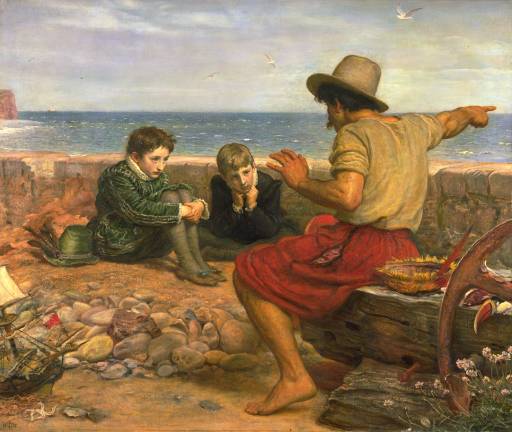Wednesday
I recently encountered a fascinating theory in Yuval Noah Harari’s Sapiens: A Brief History of Humankind (HarperCollins 2015). According to the author, humans owe their success as the planet’s dominant species to their ability to compose stories.
I periodically say that stories are as vital to us as food and shelter. Now I have an anthropologist backing me up.
Harari first argues that humans won out over all other mammal species, including Neanderthals, because of their unique language. This language allows humans to construct detailed plans of action (say, to hunt lions) and to gossip, which ensures social cohesion. But that’s not all that human language makes possible:
[T]he truly unique feature of our language is not its ability to transmit information about men and lions. Rather, it’s the ability to transmit information about things that do not exist at all. As far as we know, only Sapiens can talk about entire kinds of entities that they have never seen, touched or smelled.
The ability to invent fictions, Harari believes, is what ushered in the Cognitive Revolution:
Legends, myths, gods and religions appeared for the first time with the Cognitive Revolution. Many animals and human species could previously say, “Careful! A lion!” Thanks to the Cognitive Revolution, Homo sapiens acquired the ability to say, “The lion is the guardian spirit of our tribe.” This ability to speak about fictions is the most unique feature of Sapiens language.
Harari elaborates:
[F]iction has enabled us not merely to imagine things, but to do so collectively. We can weave common myths such as the biblical creation story, the Dreamtime myths of Aboriginal Australians, and the nationalist myths of modern states. Such myths give Sapiens the unprecedented ability to cooperate flexibly in large numbers. Ants and bees can also work together in huge numbers, but they do so in a very rigid manner and only with close relatives. Wolves and chimpanzees cooperate far more flexibly than ants, but they can do so only with small numbers of other individuals that they know intimately. Sapiens can cooperate in extremely flexible ways with countless numbers of strangers. That’s why Sapiens rule the world, whereas ants eat our leftovers and chimps are locked up in zoos and research laboratories.
Collective stories, Harari says, not only enable large numbers of people to work together but also to rapidly adapt to whatever reality throws at them. Change the story, change your behavior. This is not the way other species evolve:
The ability to create an imagined reality out of words enabled large numbers of strangers to cooperate effectively. But it also did something more. Since large-scale human cooperation is based on myths, the way people cooperate can be altered by changing the myths—by telling different stories. Under the right circumstances myths can change rapidly. In 1789 the French population switched almost overnight from believing in the myth of the divine right of kings to believing in the myth of the sovereignty of the people. Consequently, ever since the Cognitive Revolution Homo sapiens has been able to revise its behavior rapidly in accordance with changing needs. This opened a fast lane of cultural evolution, bypassing the traffic jams of genetic evolution.
The Cognitive Revolution, Harari concludes, is
the point when history declared its independence from biology. From the Cognitive Revolution onwards, historical narratives replace biological theories as our primary means of explaining the development of Homo sapiens.
If Harari’s theory is true, what new insights do we gain into literary fiction? Literature, of course, is more than stories, and there are many bad stories capable of widespread destruction—for example, those propagated by Adolph Hitler. Fiction has a lot to answer for.
But the greatest literature reaches deep within us, showing us who we are and giving us a sense of our potential. Just as primitive human beings used stories to bring about worlds not yet realized, so literature can point to transcendent ways of being. The tremendous potential that, from the first, lay in the fictional imagination still resides within well-crafted stories.
My blog posts over the years have given multiple examples of authors pointing beyond their historical moment and imagining new lives—for instance, Chaucer anticipates women demanding genuine respect from men in The Wife of Bath’s Prologue and Tale, and Shakespeare looks ahead to same sex relationships and transgendered selves in Twelfth Night. These were humans who employed stories to unlock unrealized possibilities within the human mind, even though their time period could only dimly conceive of such radical change. It would take centuries for Chaucer’s and Shakespeare’s visions to become social reality.
Literature taps into our vital core. We see the future in the novels that we read.



One Trackback
[…] I posted recently on Yuval Noah Harari’s book Sapiens: A Brief History of Humankind about how humans use stories to evolve. Thus we can say that, when Esmé and Etta listen to stories and create their own, they are developing critical faculties that will allow them to make plans, collaborate with others, and successfully engage in a host of other essential activities. Fiction, in other words, isn’t just a pleasurable extra. […]